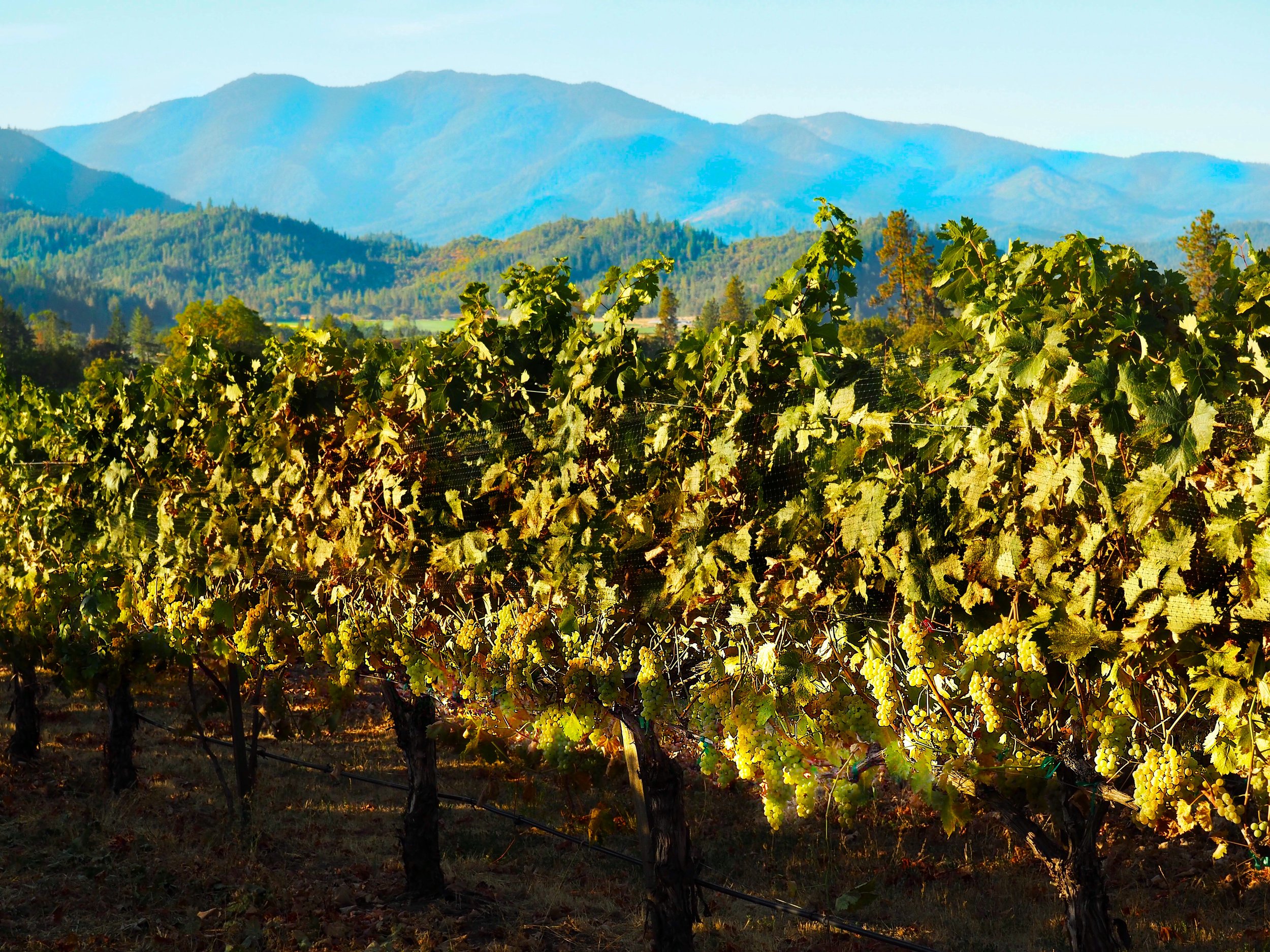There are thirty one-ton fermenters spread out before me under the oak tree behind the winery. They all need punch downs and I'm the only one there to do them. It’s raining and at this moment there is nothing romantic about winemaking, fortunately I know that once these wines are in the bottle there will be more than enough romance to make me face this line up of fermenters tomorrow, and the day after tomorrow…
Now it's night and most of me hurts and I'm exhausted, but tomorrow I will be up and ready to go as I know that my life with these wines will make the effort more than worthwhile.
But why is there just me a 63 year old available for punch downs this morning? Welcome to the Applegate Valley where there's not an intern in sight. Welcome to winemaking on the frontier. The Applegate Valley is an exciting, but emerging fine wine region and the niceties of established regions like the Willamette Valley or Napa Valley just don’t exist.
As tiring and challenging as it is, the lack of accoutrements is also liberating. You are forced into choices that make you rediscover how natural the winemaking process truly is and that so many of the interventions used almost without thought in more established regions are unnecessary.
You soon come to understand that these interventions are not only unnecessary, but detrimental as they strip wines of real character leaving pretty, fruity wines with indistinguishable personalities. When I first saw an optical sorter in the Napa Valley I was blown away. Out of one end came perfect grapes, looking exactly like blueberries, and on the side it discharged everything deemed less than perfect. My initial excitement slowly dissolved as I tasted the wines in barrel then bottle. What I thought was perfect fruit yielded wines that were one-dimensional. Those perfect grape blueberries ended up making a wine that tasted a lot like it actually came from blueberries. The strange thing about those perfect grapes is that they only look perfect. If they were truly perfect winemakers would not be forced to add acids, water and use enzymes and other additions to put back in what the optical sorter took out.
At Troon there are no optical sorters in sight, nor in all of Southern Oregon as far as I know. All of our sorting is done during the pick in the vineyard. Instead of making wine with blueberries, we make wine with the grapes that nature gives us. That means along with those perfect grapes some are a little more ripe and some a little less. In the fermenter, together with the indigenous yeasts of the Applegate Valley, this varied fruit creates wine that is anything but one-dimensional. The grapes that are a little less ripe contribute vivacious natural acidity and those a shade overripe contribute body and richness - no additions required. Oh yes, and often we include stems in the ferment. In the tank it may not be pretty, but together they make wines that are alive.
Wines that live make me feel more alive.










